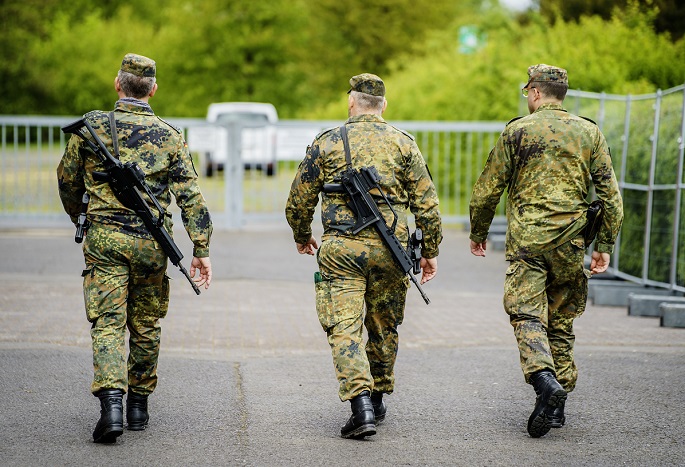German Defence Ministry plans big boost in army reserves
Published : 10 Jun 2024, 01:56
The German Defence Ministry is planning for a significantly strengthened Bundeswehr or army reserve, to include up to 60,000 men and women, a top official for the army's reservist affairs told dpa in Berlin.
"I am convinced that we must fully adapt the reserve to the current security policy challenges so that it can properly support the Bundeswehr in performing the task of national and alliance (NATO) defence," Lieutenant General Andreas Hoppe, deputy inspector general and commissioner for reservist affairs, said.
His comments come days before Defence Minister Boris Pistorius intends to present his proposal for a model of compulsory military service on Wednesday. The draft was suspended in 2011 and re-instituting it is controversial in Germany.
"We need military service as the basis for a rapid increase and the resilience of our Bundeswehr in the event of defence," said Pistorius on Friday at an event organized by the industry association of family businesses in Berlin. The reserve must also be significantly increased, he said.
Ukraine war has made Germany rethink its defence needs
"If you look at Ukraine, we are simply not capable of holding out and growing as we are at the moment. That's why we need a reserve that is capable of completely replacing forces," said Hoppe.
The goal is to equip and train reserve companies or reserve battalions in such a way that they can be seamlessly integrated into the operational command of a brigade.
Fourteen days of training per year are necessary to maintain skills, Hoppe said. He plans to do more to gain approval from companies, who would have to allow workers time off for reserve training.
"If people have a high level of training when they leave the Bundeswehr and they don't get a single chance to practice during six years of basic orders, then the value they bring will naturally become limited over time," he said.
Specialists are needed, but "simply also masses," for example for homeland security tasks, like securing infrastructure, transport routes and military facilities in Germany.
For some time now, volunteers who were not previously in the Bundeswehr have also been trained for this.
"It won't work without a reserve. We can see that in Ukraine," said Hoppe. Everyone needs to realize this, he said.
Much expertise has been lost after the Cold War
"This all existed during the Cold War, but it has been neglected for 30 years and simply no longer exists. There are still very few who still know about it. We are currently tapping into them in order to map the capabilities," Hoppe added.
The military expects some 10,000 temporary or professional soldiers to retire each year who could be recruited for this basic call-up. There are currently around 44,000 men and women on basic call-up.
The ministry is also examining the number of people who could potentially be called up to serve in the event of a defence situation.
This includes citizens who have previously served in the Bundeswehr but have not been recalled for duty. While this group is substantial, it has been diminishing since compulsory military service was suspended in 2011.
"There are different figures. We assume that there are around 800,000 who can still be called up for military service. In principle, this includes all those who have served in the Bundeswehr at some point and have retired and are within the age limits, including the last few years of conscripts," said Hoppe.
Ageing population a problem for the Bundeswehr
"But if you look at the age problem, you realize that there are fewer and fewer of them every year ... This means we have to take countermeasures and also find and recruit additional personnel for the reserve. And that's what we're doing," Hoppe said.
"Keyword homeland defence regiments," he said. "They are essentially made up of non-commissioned personnel who enlist and receive appropriate training."
For NATO's revised defence plans, however, the Bundeswehr, which shrank to 181,500 soldiers last year despite a so-called personnel offensive, must actually grow significantly.
NATO's plans mean that the personnel target is likely to increase from 203,000 soldiers to "well over 272,000" men and women in the armed forces, Der Spiegel magazine reported on Friday. The reserve can only be one component of this.


